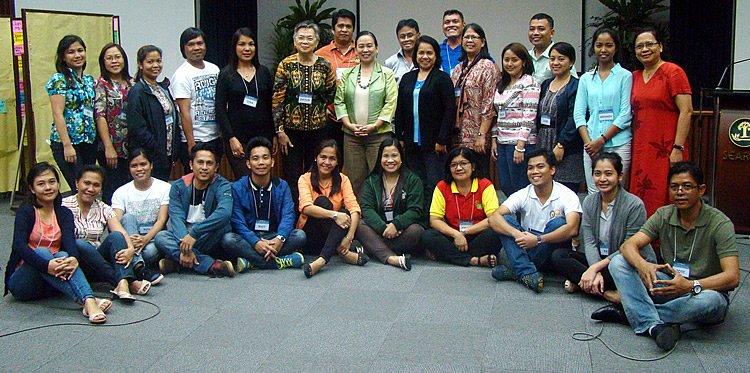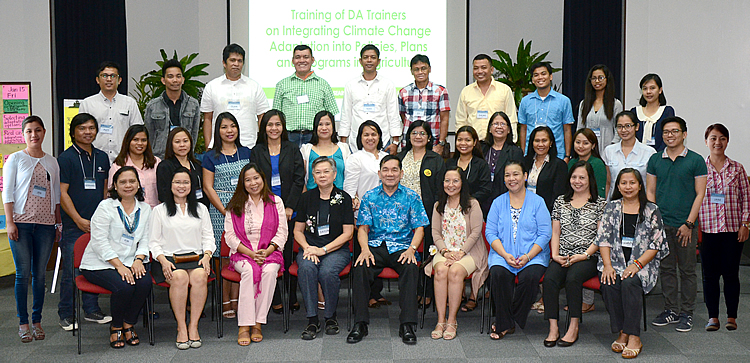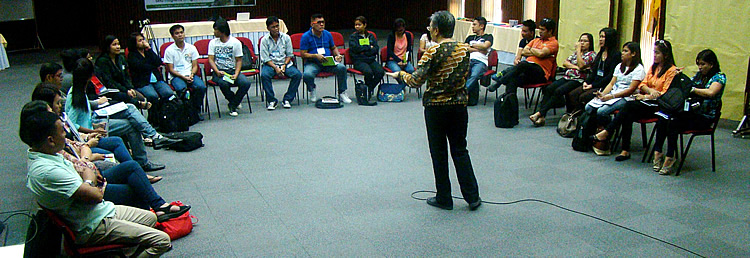Titled “Training of DA Trainers on Integrating Climate Change Adaptation into Policies, Plans and Programs in Agriculture,” the activity brought together core national training teams from the central office and regional training centers of the Agricultural Training Institute and DA RFOs who are tasked to conduct training programs under the DA-Adaptation and Mitigation Initiative in Agriculture (DA-AMIA) program. The activity forms part of the capacity-building component of the DA-AMIA project 1 on Strengthening Adaptation and Mitigation Initiative in Agriculture, which is jointly implemented by SEARCA and the University of the Philippines Los Baños Foundation, Inc. (UPLBFI). Last year, SEARCA rolled out three training-workshops that apply the systematic adaptation assessment in confronting climate change-related challenges in agriculture, in line with its goal of enhancing the capacity, awareness and understanding of DA offices on effective and systematic integration of adaptation considerations into development policies, plans and programs.
The trainers’ training aimed to equip participants with the knowledge and skills that will enable them to (1) explain the philosophy of training and management of learning, (2) assess their own capacities as persons, facilitators and training managers and (3) apply the fundamental principles and methods of adult or experiential learning in designing and conducting a training course on Integrating Climate Change Adaptation into Policies, Plans and Programs in Agriculture.
In his address to the participants, Dr. Casiano S. Abrigo, Executive Director of the UPLBFI, said that one of the marks of a learned man or a woman is their ability to train others to take their place to ensure that they do not leave a vacuum. He stressed that learning from others, regardless of social stature or office rank, is crucial to building resilient communities through climate change adaptation.
The framework of the trainers’ training is based primarily on courses and materials that follow the Overseas Economic Cooperation and Development’s (OECD) Policy Guidance on Integrating Climate Change Adaptation into Development Co-operation. Meanwhile, the training modules used were developed and widely-tested by the German Agency for International Cooperation (GIZ). For this trainers’ training, SEARCA included four core modules out of the possible ten in the training design.
During the first two days of the training, participants reviewed the basic competencies of an effective trainer, the philosophy of training and management of learning and the principles and processes behind adult or experiential learning. Dr. Serlie B. Jamias, UPLB Vice Chancellor for Community Affairs and professor at the College of Development Communication, delivered an interactive lecture-workshop on presentation and facilitation skills.
On the third day, participants were introduced to the Harvard Case Method and the four-step approach to the systematic adaptation assessment, which they applied during the walk-through or simulation of the methodology for a hypothetical case on the fourth and final days of the training.
Just like in previous training-workshops, Department of Social Forestry and Forest Governance Professor Dr. Daylinda B. Cabanilla of the College of Forestry and Natural Resources-UPLB served as technical coordinator and facilitator throughout the training, with Ms. Rosario Bantayan, SEARCA Program Specialist, serving as Co-Coordinator. (Christian Ray Buendia)


